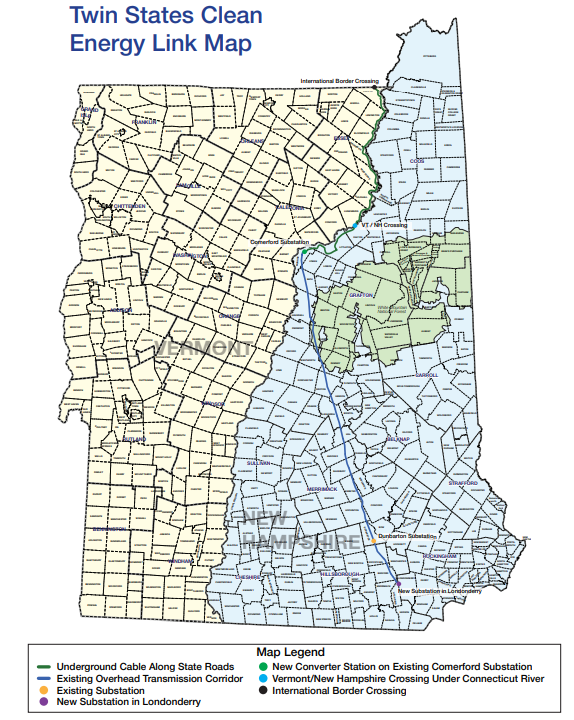It has taken a few tries but looks like there will finally be a new transmission line between Quebec and Northern New England
https://www.prnewswire.com/news-rel...ns-transmission-infrastructure-301971701.html
The concept is that Quebec province has excess hydro capacity (at least in the short term) and New England hopes to have excess power from offshore wind farms. The hydro quebec hydros are mostly ponded storage so they can effectively be used as "batteries" like the Norwegian hydros in Europe are used. The offshore windfarms will be far more dispatchable than conventional onshore wind but there is no way to store wind so the power line with the capability of one modern new nuclear power plant will allow higher penetration of renewables into the region. Unlike a competing private line in Maine that is struggling along, the Twin States line will be operated by the ISO New England grid, hopefully for the benefit of the electric power consumers compared to the owner of the private line. Quebec has access to more hydro generation but its costly to develop and without a long term customer they have been reluctant to start the process. My guess is that since New England is also short of natural gas that some natural gas power generated with more available Canadian gas may end up on the line on occasion until the offshore wind resource is developed.
https://www.prnewswire.com/news-rel...ns-transmission-infrastructure-301971701.html
The concept is that Quebec province has excess hydro capacity (at least in the short term) and New England hopes to have excess power from offshore wind farms. The hydro quebec hydros are mostly ponded storage so they can effectively be used as "batteries" like the Norwegian hydros in Europe are used. The offshore windfarms will be far more dispatchable than conventional onshore wind but there is no way to store wind so the power line with the capability of one modern new nuclear power plant will allow higher penetration of renewables into the region. Unlike a competing private line in Maine that is struggling along, the Twin States line will be operated by the ISO New England grid, hopefully for the benefit of the electric power consumers compared to the owner of the private line. Quebec has access to more hydro generation but its costly to develop and without a long term customer they have been reluctant to start the process. My guess is that since New England is also short of natural gas that some natural gas power generated with more available Canadian gas may end up on the line on occasion until the offshore wind resource is developed.
Last edited:


![[Hearth.com] New Transmission Line in Northern New England [Hearth.com] New Transmission Line in Northern New England](https://www.hearth.com/talk/data/attachments/318/318163-ba303374976a4fce9494a97ad49a3c8d.jpg?hash=ScXreWF1e1)


